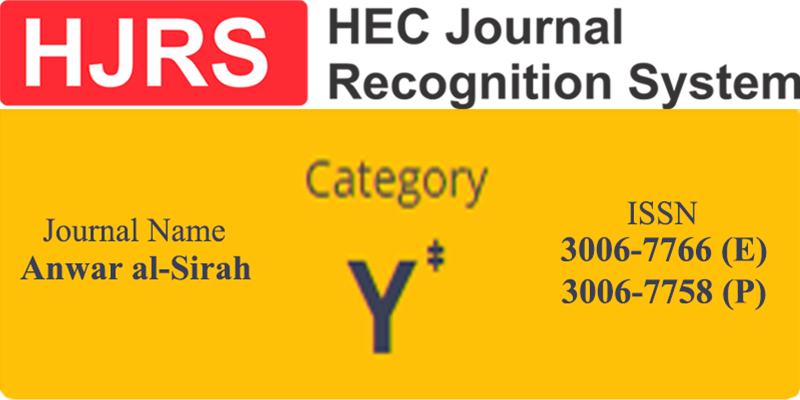منتخب اردو کتب میں منعکس اخلاق نبوی: ایک موضوعاتی وتجزیاتی مطالعہ
Prophetic Ethics as Reflected in Selected Urdu Works: A Thematic and Analytical Exploration
Keywords:
Ethics, Morality, Prophet Muhammad ﷺ, Urdu, BooksAbstract
This article deals with the concept of Akhlaq-e-Nabawi (Prophetic Ethics) based on selected Urdu literature. The moral conduct of Prophet Muhammad (PBUH) holds a central place in Islamic thought, as emphasized in the Quran: “Indeed, you are upon the highest standard of character” (Al-Qalam: 4). The article highlights the significance of prophetic ethics and the extensive documentation found in Urdu literature, which serves as a crucial source for understanding this aspect of the Prophet’s life. The study presents an annotated bibliography of key Urdu works on Prophetic ethics, spanning classical texts to contemporary writings. Selected publications are studied based on their structure, content, methodology, and scholarly contributions. Notable works such as Akhlaq-e-Rasool by Ikhlaq Hussain Qasmi, Akhlaq-e-Muhammadi by Saeed Ahmed Farooqi, and Akhlaq-e-Nabawi compiled by Hakeem Muhammad Saeed are critically examined. The article explores the moral, social, and political dimensions of the Prophet’s ethics, addressing core values such as truthfulness, justice, compassion, and humility. By reviewing these Urdu writings, the study contributes to the understanding and dissemination of Islamic ethics, encouraging contemporary scholars to explore further this essential aspect of Seerat-un-Nabi (Prophetic Biography).
Downloads
Published
How to Cite
Issue
Section
License
Copyright (c) 2025 Dr. Yasir Arfat Awan

This work is licensed under a Creative Commons Attribution-NonCommercial 4.0 International License.
Copyrights of all research papers published in Journal of the 'ANWĀR AL-SĪRAH are held by the auther(s). However, as the 'ANWĀR AL-SĪRAH follows Open Access Policy under license CC by NC for global exchange of knowledge, readers are freely allowed to download, read and print the full text papers of 'ANWĀR AL-SĪRAH without prior permission from the 'ANWĀR AL-SĪRAH or the author(s) as long as they acknowledge/cite the 'ANWĀR AL-SĪRAH as the original source.

